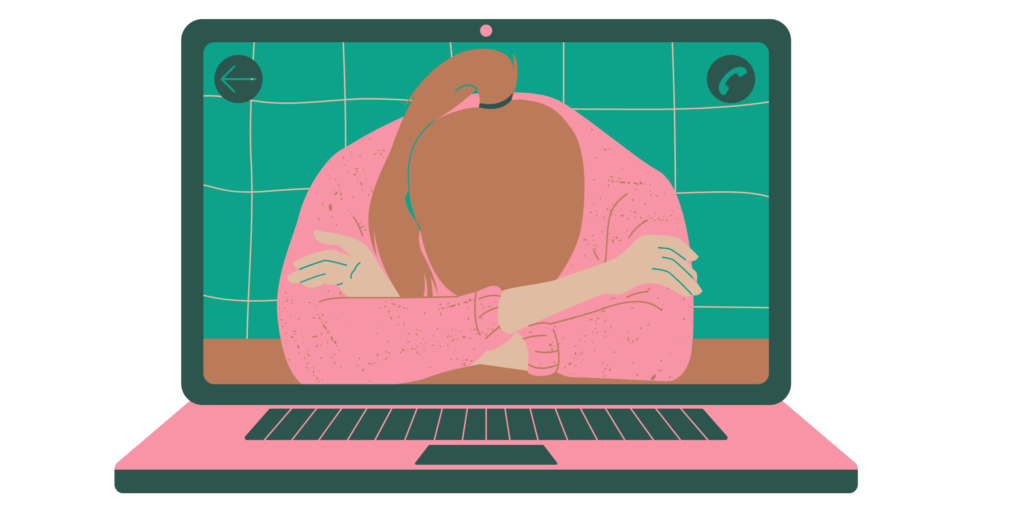Energy Means More Productivity
Have you ever found yourself anxiously fretting in bed the night before you had to perform a really big task? For many people the thought of the task makes them anxious and additionally the feeling that they will underperform because of less sleep fuels those anxious thoughts. It’s a very common vicious cycle and one that often leads to insomnia. In fact this combination of worries may be one of the most common “recipes for insomnia” for those who suffer from it.
The good news for the above is that cognitive behavioral therapy for insomnia or CBT-I is a safe and proven way to treat insomnia if it starts to become a problem. Most people who engage in those principles are able to resolve their insomnia in about 5 weeks.
When we say lack of energy we’re not talking about one night or a few nights even of poor sleep. We’re not even talking about chronic insomnia. We’re talking about a lack of overall energy that is attributed to chronic illness and inflammation and the breakdown in the function of the mitochondria at the cellular level.
Let’s go back to the initial worry for one more second. You’re worried about energy expenditure and productivity. Why is that? I think everyone knows instinctively that when they have their peak energy they perform their best. Here’s the thing- a good night sleep is not what gives us our best energy. Sure a good night’s sleep contributes to that but did you know what 5.5 hours of sleep is actually considered core sleep? What gives us our best energy is when our body exists in homeostasis- and is ticking away functioning the way it is designed to function. And our body achieves this in part when our mitochondria are producing energy efficiently. We need healthy mitochondria to be healthy.
When we say healthy we mean a healthy weight, exercising regularly throughout the week, excellent blood work from the doctor and a generally optimistic growth-oriented mindset. Goals am I right? Somebody who is unwell may sleep for 7 or 8 hours and wake up and still feel fatigued. This is the fatigue that we are talking about in this article. Not bad sleep fatigue (we all experience that in our lifetime) but the other fatigue- the fatigue that keeps us from living our best lives.

When you’re in homeostasis your body is energized. Let’s take a look at why:
Homeostasis occurs when our bodies are doing what they need to do. They’re breaking down ATP in the mitochondria and powering our cells. We get ATP from glucose in the presence of oxygen. Meaning that if we are breathing we are going to need ATP- plants and animals both require ATP for energy. As animals we get our glucose comes from consuming plants and animals that have in turn consumed plants which have been powered by the sun. Ultimately ATP is possible because of the sun’s energy. Cool, right? We can also create energy in a state called ketosis. As long as our mitochondria are breaking down the ATP our body is working- nay, thriving! Our muscles are working and we’re energized we can tackle what we aspire to achieve each day. In the case of chronic illnesses such as autoimmune diseases our mitochondria are struggling to convert the ATP to energy.
And there are a number of variables that sap the energy made in our mitochondria. Let’s take a look at some of the big ones:
Medications- Many studies have indicated that medications in a wide variety of classes actually cause more damage to the mitochondria. This is called “Medication-induced mitochondrial damage” and includes these medications: psychotropic drugs, statin medications, analgesics, and others. If you’re not well then chances are you’re taking medications which unfortunately can damage your health. It’s a tough combo and many people find they have to change their eating habits to get to a place where they can stop using the medications.
Oxidative stress- Oxidative stress exposes iron which reacts with H2O2 that produce hydroxyl radicals and nitric oxide which also reacts to O2- causing deterioration to the mitochondria.Think of it like this, fruits that are lower in antioxidants typically turn brown more quickly when exposed to oxygen (think avocados and apples) whereas fruits with higher antioxidants don’t change as rapidly (think citrus fruits and berries). So yes, consuming healthy foods with higher amounts of antioxidants does help us to reverse or slow down oxidative stress. And yes we are comparing apples to oranges here.
How do we experience oxidative stress? Exposure to chemicals which could be in our environment or in the products we use around our home. Stress also causes oxidative stress. Have you ever had a really hard day and then been stuck in traffic fumes for an hour or two hour commute home only to return home feeling absolutely exhausted? A lot contributes to this fatigue but over time this accumulates and also accelerates oxidative stress. In short, it ages us like an apple and not like an orange.
Inflammation- Eating the wrong foods, allergic reactions, viruses and other things that trigger and sustain an inflammatory response in the body all create problems for our mitochondria. Sure, some level of inflammation is a good thing- it’s a signal to our body to send healing and recovery. But chronic inflammatory illnesses such as autoimmune diseases create chronic inflammation which in turn are problematic for our mitochondria and in turn our energy.
Nutrient Deficiency- caused by consuming fewer nutrient dense foods and by leaky gut and other gut imbalances. When we consistently eat processed food that contain little to no nutritional value then we are in turn damaging our mitochondria which affect ATP which in turn means we are going to lack energy. Or if we are not consuming enough food we lack the glucose necessary for ATP to energize our bodies. Which is why hunger also can lead to a drop in energy- especially if we are very very hungry. However if when we are hungry we choose to eat foods with little to no nutrient content such as processed foods then we are still causing a deficiency in nutrients triggering hunger yet again causing us to reach for more food. This is one of the reasons consuming processed food almost exclusively leads to weight control issues. The individual is essentially starving themselves of required nutrients and feeding themselves empty calories (calories with no nutritive value).
Processed foods, certain medications and other forms of stress can essentially rip holes into the lining of your intestines causing something known as “leaky gut” making it that much more difficult for your body to absorb the nutrients it needs to fuel itself at the cellular level. Hippocrates said “let thy food be thy medicine and thy medicine be thy food” for a really good reason.
Can we add: and let thy good food choices be thy boost in pay? We think so!

Let’s recap what makes energy: The mitochondria make ATP from glucose and oxygen in our cells. The small intestines extract glucose from the food we eat. When we eat foods that are not truly food (i.e. multisyllabic chemical compounds mashed into a “food stuff”) then we can’t power our body efficiently. Not only that, but we age more rapidly and we have less energy to be productive.
Which brings us to our next point. A longer life leads to longer money-making years.
Working Efficiently Until Retirement and Beyond!
We like to wax away philosophically about our “prime years” and think about what it is exactly that causes people to live a good life past 100. Those “Blue Zone” studies look at quality of food and quality of social life.
What if we had more prime years? What if we could extend our productive years past the retirement age? Also what if while we were in our prime years we could maximize productivity? Both of these variables would contribute to more money. Let’s look at the first point- extending our employment years.
Extending the Retirement Years
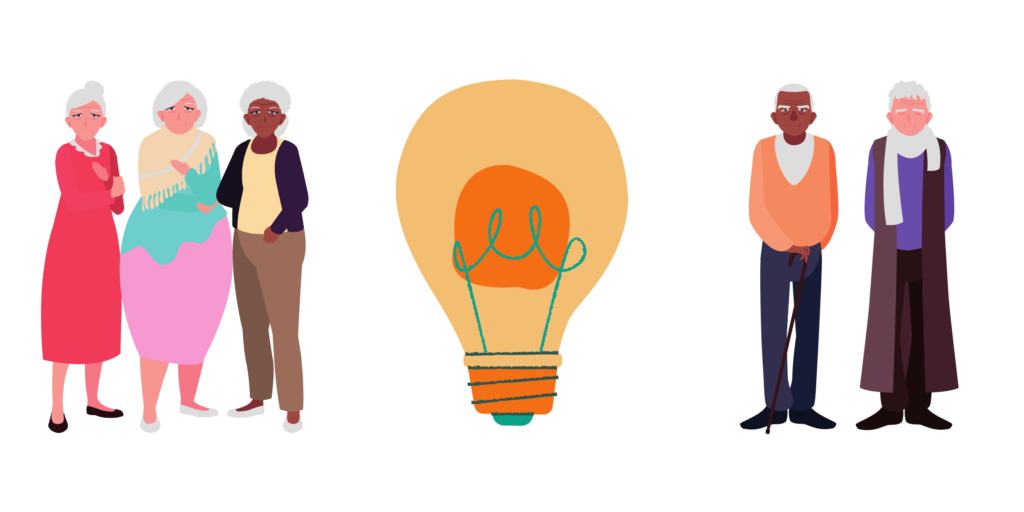
According to a study conducted at the Stanford Center on Longevity, which was based on the spending and earning behaviors of middle class Americans, middle-income couples were able to double their retirement salaries by working full-time until the age of 70 rather than the median retirement age for Americans which is 62.
The study examined couples who worked until 66 and included information about couples who worked full-time and part-time during this period. Imagine having closer to $80,000 as your annual salary during your retired years verses something closer to $40,000. That is not an insignificant number. It can mean the difference between being able to travel during retirement and not.
Additionally, retiring at 70 means that you can earn your largest benefits through the delayed retirement credits system. Your benefit is calculated according to the year you were born. If you were born in 1963 and retired in 2023 at age 70 you receive 124% of your primary insurance amount.
What this boils down to is that a longer working life with quality benefits equals a much higher social security benefit.
According to Social Security, in the case of early retirement if you start to draw out your social security at the age of 62 (the earliest retirement age) your social security benefits are reduced by 30%.
The variables sighted for shortening time at work were all health related. Unfortunately, the majority of individuals who were not able to work until the age of 70 had to retire earlier due to health reasons.
Not everyone loves their job enough to keep at it for an additional 8 years. But everyone who did saw a monetary pay off. Not only that but a healthy early life likely means good retirement years and we all want that, right?
A healthy life also equates to more savings for those retired years and much less financial pressure. Why? Medical bills.
The Cost of Being Sick
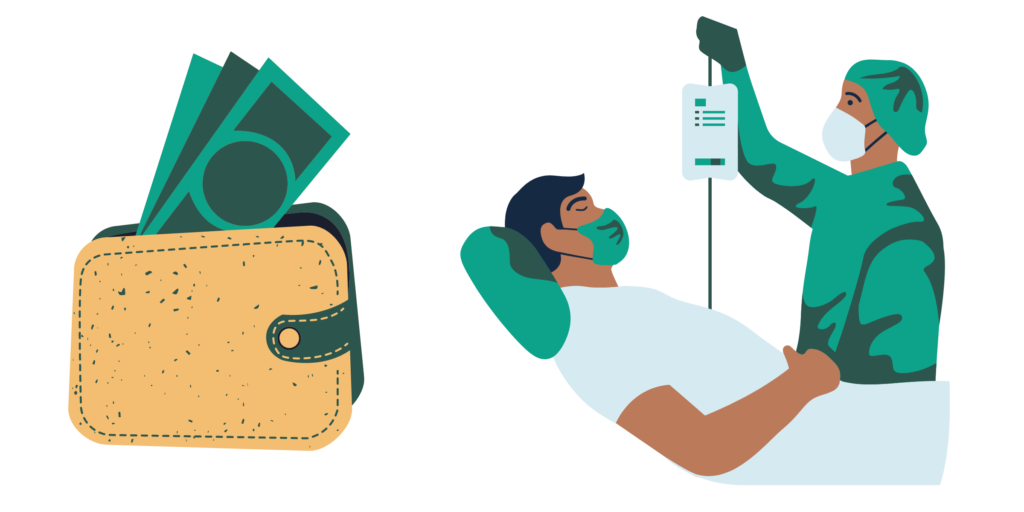
Let’s take a look at the cost of diabetes. According to the American Diabetes Association, people diagnosed with diabetes average annual medical costs of $16,752 where over $9,000 of those are directly attributable to diabetes. Which means that if you are diagnosed with diabetes at the age of 45 you will have spent $153,000 on diabetes-related health issues by the time you are of retirement age.
Do people with diabetes have a more difficult time being productive at work? Yes. In general diabetes is associated with lower productive rates, absenteeism, and in many cases, an inability to work at all due to a disease-related disability.
Take a look at the numbers according to the American Diabetes Association:
- “increased absenteeism ($3.3 billion),
- reduced productivity while at work ($26.9 billion) for the employed population,
- reduced productivity for those not in the labor force ($2.3 billion),
- inability to work as a result of disease-related disability ($37.5 billion), and
- lost productive capacity due to early mortality ($19.9 billion).”
As you can see, the costs of diabetes goes far beyond the costs to the individual.
Source: https://www.diabetes.org/resources/statistics/cost-diabetes
Medical bills are far from benign. Accruing medical bills can have an impact on all of your assets. In fact, over ⅓ of all Americans are living with some kind of medical debt and over half of those Americans have defaulted on those bills. Furthermore those out of work due to a disability only qualify for a monthly paycheck ranging from $800-$1800 per month.
We all are familiar with what happens when we default on a bill. Those bills are sent to a debt collector and when that happens credit scores take a hit. A fair or poor credit score has an impact on our ability to purchase a car or a house and may even impact whether or not we can rent a property too!
Okay so we have discussed how productivity to the age of 70 can increase your wealth as well as how avoiding medical costs can keep dollars in your pockets, and how your health plays into long-term debt and financial distress. What other ways does health relate to more money?
Improving Health in the Workplace
According to the Wall Street Journal, healthier workers performed better at work. The WSJ followed a laundry company which kept detailed data comparing data across multiple years. As part of a company wide wellness initiative, the employees engaged in healthier eating habits, increased exercise, and stress reduction exercises. The result of the study showed that the workers were able to work harder likely due to the fact that they felt better at work and because they felt more positive about their employers who they perceived as caring about their well-being. The company prospered as well. For every $100 invested in the wellness of their employees the company saw a return of $176!
Source: https://www.wsj.com/articles/healthy-workers-are-more-productive-study-finds-1502219651
Socioeconomic Status and Wealth

Not every variable for health and wellness is controllable simply by changing behavior. Circumstance does affect wealth in a number of ways.
Where you grew up, your race, and where you live all affect your overall well being and wealth.
According to an Adverse Childhood Experiences (ACEs) study, children who experience a number of early childhood traumas have a higher likelihood of engaging in poor behavioral health such as smoking and low physical activity. Additionally, these traumas may increase mental health issues and increase the risk of physical illness.
Individuals living in these poor communities tend to have less access to the following:
- Health care
- High-quality education
- Supportive community
- High paying jobs
It appears as though the health and wealth of your surrounding community reflects your own economic status. Is it safe to say that if everyone in society were healthy then everyone would have a greater likelihood of accessing wealth?
Understanding health is complex. So far we have briefly examined how the following areas impact our health and consequently our wealth:
- Childhood Experiences
- Surrounding Socio Economic Status
- Exercise
- Stress (work stress, oxidative stress)
- Disease
- Age of Retirement
- Medications
- Quality of Food (Nutrient Density)
Mental Well Being and Work
We have yet to discuss how mental health impacts work as this area is slightly outside of the scope of the article. That being said, mental well being does make an impact and deserves a mention as to how it impacts work.
The following societal pressures have impact on mental well being:
- The “Always On” mentality can affect circadian rhythms and sleep
- Social isolation can cause despair
- Divorce may cause depression and lack of motivation
- Poor work-life balance can cause depression, anxiety, and low energy
- The mental impact of disease may cause depression
It’s not rocket science. There is clearly an impact on mental health and productivity in the workplace.
Source: https://theonebrief.com/impacts-of-mental-and-emotional-health-on-employee-wellbeing/
But isn’t productivity mostly about the company’s growth or the growth of a nation’s labor force? How does more productivity truly relate to more money in our own pockets?
The Circle of Prosperity
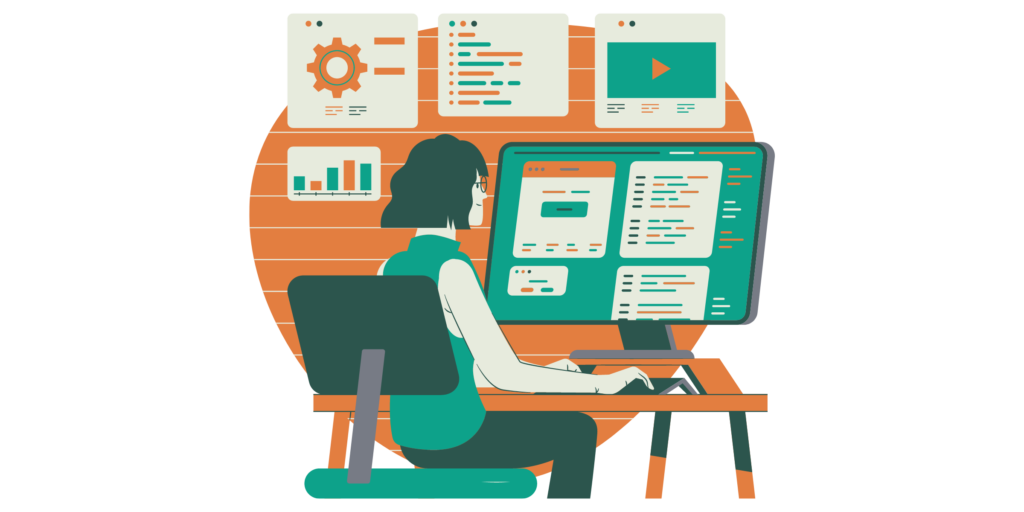
Bill Greiner explains in this thought piece that when we have disposable income and invest that disposable income (and our investments are good investments), then productivity tends to rise and we create a “circle of prosperity.” Without disposable income however, we can’t save or invest that income. The productivity of the individual benefits the individual and the society as a whole. And since when we are healthier we are more productive suffice to say that our health impacts our savings and investments as well.
It appears as though having wealth gives us the opportunity to invest more and investing can lead to increased wealth over time.
Invest in Yourself: Reclaiming Your Health and Subsequently Your Wealth
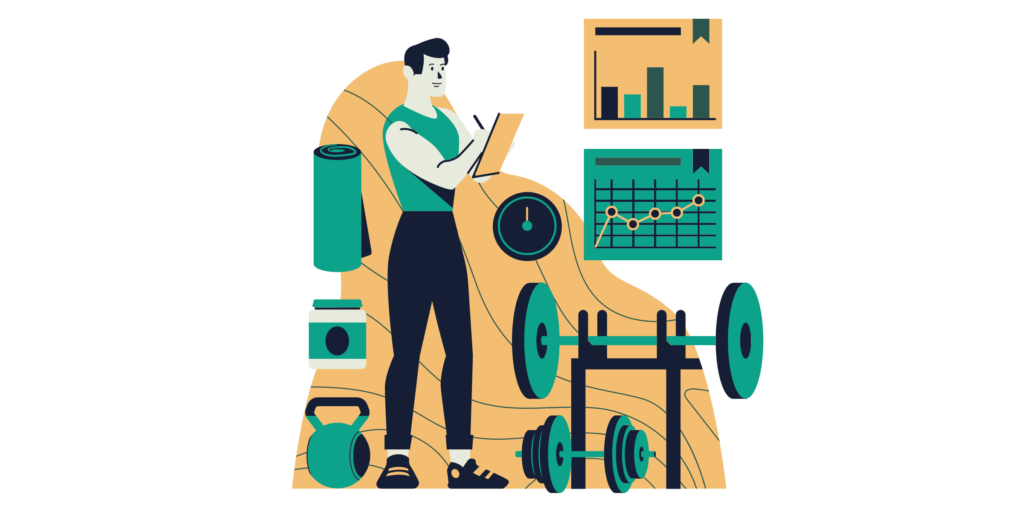
Hopefully you’re not feeling more stressed now that you read this article. Though chances are you started to think about your own health in relation to your own wealth. While a lot of the data we shared related to individual disease and its impact on wealth, we have yet to talk about ways to improve your health and wealth which is how we will conclude this piece.
At the beginning of this article we talked a little bit about how we make energy in our mitochondria. We discussed ways that mitochondria get taxed and how stressors, food choices and medications all impact our body’s ability to produce energy.
Let’s talk about ways to reclaim your health and wellness so that you can start maximizing your productivity, increase your prime years, and ultimately live a longer life so that you can live comfortably throughout your lifetime.
- Exercise- while it may seem like an impossible task because you’re tired, exercise gives you energy. You may not feel like it at all but too bad. Get some more movement to increase energy, maintain a healthy weight or lose weight, and help to improve sleep.
- Eat more fruits and vegetables- Do you still struggle to eat all of the recommended vegetables even as an adult? You and 90% of America. According to the Center for Disease Control, only 1 in 10 Americans eats the recommended amount of vegetables. Start by increasing your vegetable intake in the morning. You could juice your greens or stir some kale into your morning eggs. The CDC recommends eating 2 cups of fruit and 2-3 cups of vegetables daily.
- Sleep Hygiene- Struggling to get a good night’s sleep? Keep a daily sleep log and start a wind down sleep routine at night.
- Focus/Mindfulness- These practices help with overall mental well being which affect work performance and productivity as well as relationships with others in the workplace. Mindfulness apps are now widespread. We like the Healthy Minds app, but pick one that works for you.
This may seem like a lot of work but remember your return on investment!
